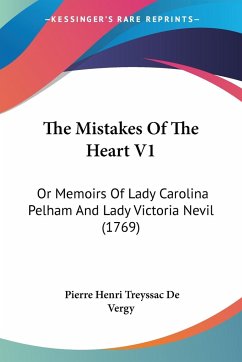
The Mercenary Lover

PAYBACK Punkte
4 °P sammeln!
The Mercenary Lover (1726) is a novel by Eliza Haywood. Blending tragedy and comedy, Haywood explores the intersection of ambition, family, and desire to reveal how women so often fall victim to the whims of villainous men. The Mercenary Lover is considered a prime example of the popular genre of amatory fiction, which often used love triangles to expose the imbalance between male and female desire in a patriarchal society. Miranda and Althea are young, beautiful, and wealthy. Regardless of their individual merits, however, they both fall victim to unbridled desire in the form of the dastardly...
The Mercenary Lover (1726) is a novel by Eliza Haywood. Blending tragedy and comedy, Haywood explores the intersection of ambition, family, and desire to reveal how women so often fall victim to the whims of villainous men. The Mercenary Lover is considered a prime example of the popular genre of amatory fiction, which often used love triangles to expose the imbalance between male and female desire in a patriarchal society. Miranda and Althea are young, beautiful, and wealthy. Regardless of their individual merits, however, they both fall victim to unbridled desire in the form of the dastardly Clitander. When he chooses Miranda, she counts herself lucky and prepares for a life of passion and companionship. Meanwhile, the young man begins fantasizing about what he could do with her inheritance, and soon hatches a plan to take control of their family estate. What follows is a tale of betrayal and greed, a series of tragic events that threatens to divide two sisters forever. This edition of Eliza Haywood's The Mercenary Lover is a classic of English literature reimagined for modern readers. Since our inception in 2020, Mint Editions has kept sustainability and innovation at the forefront of our mission. Each and every Mint Edition title gets a fresh, professionally typeset manuscript and a dazzling new cover, all while maintaining the integrity of the original book. With thousands of titles in our collection, we aim to spotlight diverse public domain works to help them find modern audiences. Mint Editions celebrates a breadth of literary works, curated from both canonical and overlooked classics from writers around the globe.












